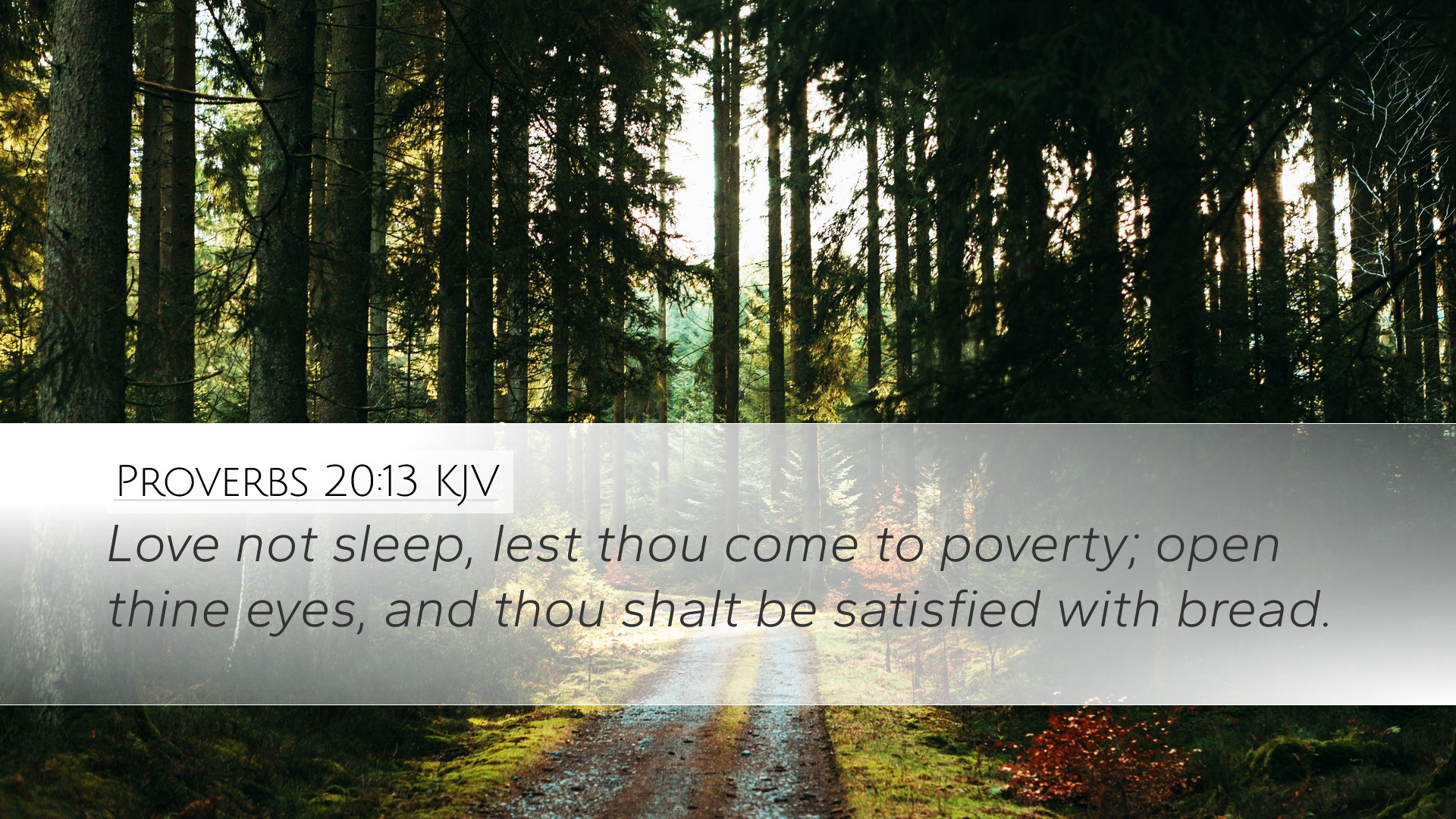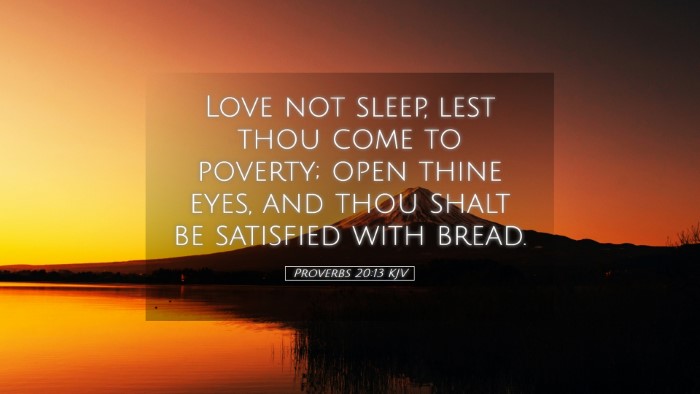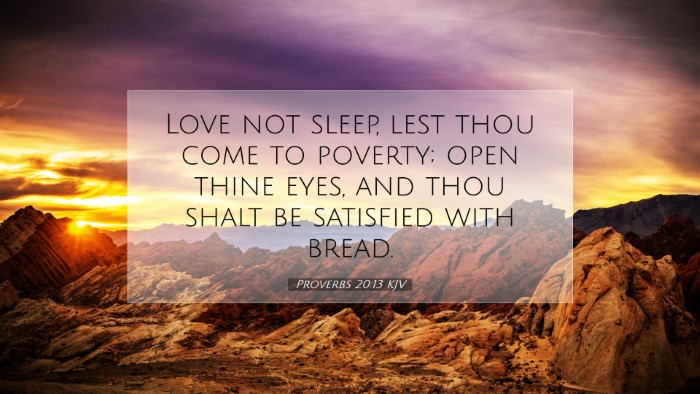Commentary on Proverbs 20:13
Verse: Proverbs 20:13 - "Love not sleep, lest thou come to poverty; open thine eyes, and thou shalt be satisfied with bread."
Introduction
The verse Proverbs 20:13 serves as a significant reminder about the dangers of sloth and the call to diligence as essential virtues for prosperity. This short proverb encapsulates profound wisdom, urging the reader to actively engage in life and avoid the temptations of laziness.
Summary of Insights from Commentators
Matthew Henry's Commentary
Matthew Henry emphasizes the practical nature of this proverb. He asserts that slothfulness leads to poverty, and the rich rewards of labor are contrasted with the consequences of excessive sleep and idleness. Henry remarks on the intrinsic human tendency to seek comfort and rest over hard work, yet he stresses that “opening one’s eyes” signifies an awakening to the responsibilities of life.
Albert Barnes' Commentary
Albert Barnes discusses the importance of “opening one’s eyes” not only in a literal sense but as a metaphor for awareness and readiness. He points out that a diligent and watchful spirit benefits from opportunities that present themselves in daily life. Barnes categorically states that a lazy lifestyle often leads to dire consequences, particularly poverty and lack. He underscores that the pursuit of wealth often requires a proactive mindset and a willingness to work hard in order "to be satisfied with bread."
Adam Clarke's Commentary
Adam Clarke elaborates on the consequences of one’s choices regarding diligence versus laziness. He notes that the insistence on “not loving sleep” is a moral injunction against procrastination and complacency. Clarke lays out the principle that forsaking laziness can lead to abundance, while neglecting responsibilities will usher in ruin. Additionally, he reflects on cultural attitudes towards work and sleep throughout the ages, emphasizing the value placed on industriousness as a means to achieve sustenance.
Thematic Analysis
- Diligence - The overarching theme in this proverb emphasizes the significance of hard work. The Bible consistently illustrates diligent labor as a pathway to success.
- Poverty and Prosperity - The contrast between poverty and satisfaction with bread is critical to understanding the implications of this verse. Poverty can be interpreted not only in material terms but also spiritually and relationally.
- Awareness and Responsibility - The exhortation to "open thine eyes" serves as a call to personal responsibility and engagement with life, promoting an active rather than passive approach to one's circumstances.
Applications for Today
This wisdom from Proverbs 20:13 can be applied in numerous modern contexts:
- Personal Development: Individuals are encouraged to cultivate habits of diligence and responsibility in their lives, recognizing that personal growth often requires sacrifice and effort.
- Work Ethic: The verse serves as a reminder for professionals to maintain a strong work ethic and to resist the allure of complacency in their careers.
- Family and Community: Parents and community leaders can use this teaching to instill the values of hard work and awareness in the younger generation.
Conclusion
Proverbs 20:13 encapsulates vital truths regarding diligence, responsibility, and the avoidance of sloth. By synthesizing insights from Matthew Henry, Albert Barnes, and Adam Clarke, we gain a deeper understanding of the repercussions of our attitudes toward labor. This verse challenges us to reflect on our own lives and to embrace an attitude of vigilance and hard work, assuring that we do not find ourselves impoverished in any aspect of life. Through commitment to diligence and awareness, we can experience the satisfaction of provision and success.


